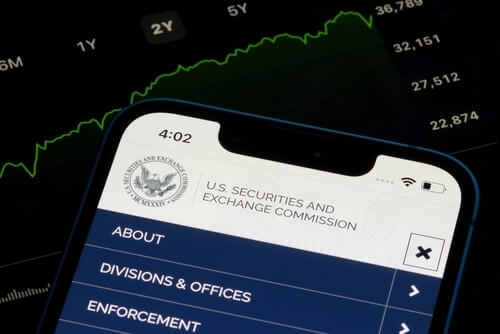On Wednesday, the US Securities and Exchange Commission (SEC) authorized the first batch of spot Bitcoin exchange-traded funds (ETFs), marking a turning point for crypto.
The agency posted a list of the approved applications on its website, including Ark Investments/21Shares, BlackRock, and Invesco, to name a few. Their funds are set to trade on exchanges in the US on Thursday.
The move is a significant validation for Bitcoin (BTC), the world’s largest cryptocurrency with a market capitalization of $912.75 billion. It peaked at $1.28 trillion in November 2021, before the collapse of stablecoin TerraUSD, which led to the crash of the entire crypto market.
Analysts estimated that BTC ETFs will attract $50.00 billion to $100.00 billion this year. The heightened interest from larger investors may also boost their prices by over 100.00% to $100,000.00.
BTC’s journey to acquire the SEC’s backing to facilitate its institutionalization took over 10 years. Asset managers began applying for Bitcoin ETFs in 2013, but the regulator consistently denied each one, citing market manipulation vulnerabilities.
Things took a turn in August after a court judged the SEC’s rejection of Grayscale Investments’ ETF application was groundless. The decision sent shockwaves in the crypto market, triggering a rally that saw BTC gaining over 70.00% in value.
Traders saw an intense crackdown against crypto firms and industry leaders throughout last year. It boosted speculation that the SEC was testing new safeguards for when it could no longer delay approving such funds.
SEC Legitimizing Bitcoin ETFs: How It Works
Official regulator recognition allows the trading of BTC ETF assets on traditional exchanges. Issuers can list them on the Nasdaq, the New York Stock Exchange (NYSE), and the Chicago Board Options Exchange (CBOE).
The issuer takes responsibility for securing the underlying Bitcoin, likely through custodians like Coinbase Global and Gemini. Crypto exchanges will then use aggregate trading data to price the products based on the tracked value of BTC.
As a result, investors can trade Bitcoin-priced products without directly handling or owning the cryptocurrency. It eliminates the conventional challenges of trading BTC, such as setting up crypto wallets and securing private keys.
With the SEC’s approval, access to BTC has now expanded to ETFs.











